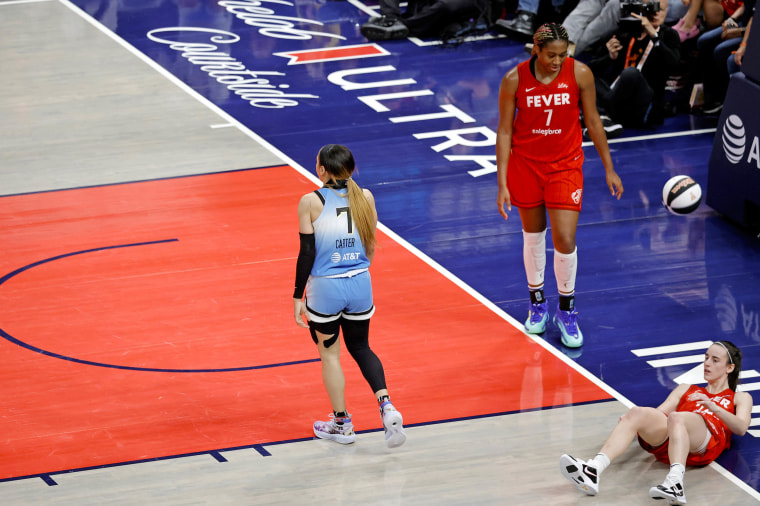Indiana Fever guard Caitlin Clark has helped take the WNBA to a whole new level of popularity, but she has made sure to remind people that much of the foundation of the league was built by Black stars.
Clark, who was named Time’s 2024 Athlete of the Year on Dec. 10, reflected in the publication’s story on her achievement about how she views her place in the league’s lineage of talent.
“I want to say I’ve earned every single thing, but as a white person, there is privilege,” she said. “A lot of those players in the league that have been really good have been Black players. This league has kind of been built on them.”
“The more we can appreciate that, highlight that, talk about that, and then continue to have brands and companies invest in those players that have made this league incredible, I think it’s very important,” she continued. “I have to continue to try to change that. The more we can elevate Black women, that’s going to be a beautiful thing.”

Clark’s comments refer to her white privilege, defined as the inherent and unearned advantages and benefits white people have over non-white people. According to Learning for Justice, white privilege “exists because of historic, enduring racism and biases.”
The issue of race often came up during Clark’s Rookie of the Year campaign this past season, whether it was her reported rivalry with Chicago Sky star Angel Reese, taking flagrant fouls on the court or her immediate popularity compared to some of the league’s established Black stars.
Las Vegas Aces star A’ja Wilson, a three-time WNBA MVP, spoke to Marie Claire magazine in May about the effect Clark’s arrival has had on other players.
“I felt like I was mentally tired in that whole whirlwind of people constantly saying, ‘A’ja you’re only known because of Caitlin; we’re only here because of Caitlin,’” Wilson said. “And that’s great, I get that, but while you’re here I’m not going to let you discredit me or the work that I’ve done, or my teammates or the people who came before have done.”
Wilson also told The Associated Press that she believes Clark’s race is “a huge thing” when it comes to her popularity.
“I think a lot of people may say it’s not about Black and white, but to me, it is,” she said. “It really is because you can be top notch at what you are as a Black woman, but yet maybe that’s something that people don’t want to see.”
“They don’t see it as marketable, so it doesn’t matter how hard I work. It doesn’t matter what we all do as Black women, we’re still going to be swept underneath the rug. That’s why it boils my blood when people say it’s not about race because it is.”
Black players like Sheryl Swoopes, Lisa Leslie, Candace Parker, Cynthia Cooper and Maya Moore helped establish the WNBA as a top women’s basketball league in the world. The WNBA has also had white stars before Clark, from Sue Bird to Breanna Stewart.
Clark didn’t believe any hard fouls against her by Black players had anything to do with her popularity.
“I never thought I was being targeted,” she told Time. “Obviously, that shouldn’t ever happen within a game. But basketball is physical. Your emotions can get the best of you. My emotions have gotten the best of me many times.”
She also tries not to give oxygen to those looking to make any confrontations or rivalries on the court about race.